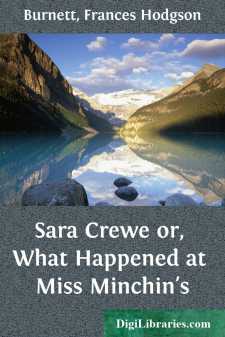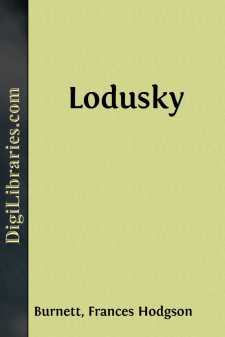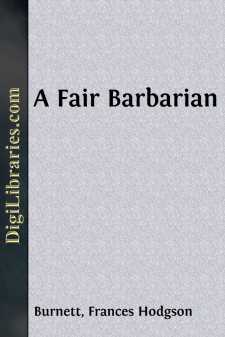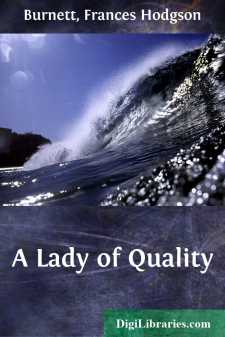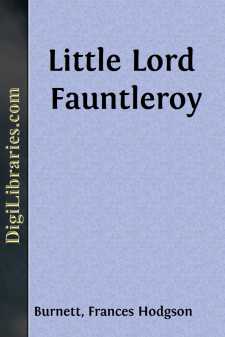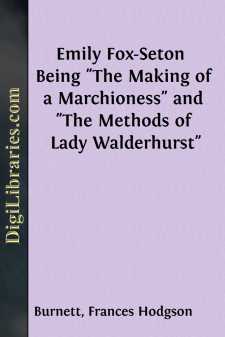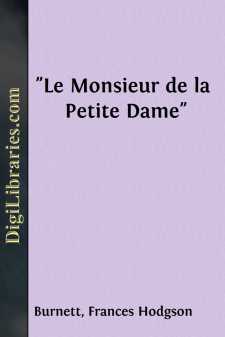Categories
- Antiques & Collectibles 13
- Architecture 36
- Art 48
- Bibles 22
- Biography & Autobiography 813
- Body, Mind & Spirit 142
- Business & Economics 28
- Children's Books 14
- Children's Fiction 11
- Computers 4
- Cooking 94
- Crafts & Hobbies 4
- Drama 346
- Education 46
- Family & Relationships 57
- Fiction 11829
- Games 19
- Gardening 17
- Health & Fitness 34
- History 1377
- House & Home 1
- Humor 147
- Juvenile Fiction 1873
- Juvenile Nonfiction 202
- Language Arts & Disciplines 88
- Law 16
- Literary Collections 686
- Literary Criticism 179
- Mathematics 13
- Medical 41
- Music 40
- Nature 179
- Non-Classifiable 1768
- Performing Arts 7
- Periodicals 1453
- Philosophy 64
- Photography 2
- Poetry 896
- Political Science 203
- Psychology 42
- Reference 154
- Religion 513
- Science 126
- Self-Help 84
- Social Science 81
- Sports & Recreation 34
- Study Aids 3
- Technology & Engineering 59
- Transportation 23
- Travel 463
- True Crime 29
Sara Crewe or, What Happened at Miss Minchin's
Categories:
Description:
Excerpt
In the first place, Miss Minchin lived in London. Her home was a large, dull, tall one, in a large, dull square, where all the houses were alike, and all the sparrows were alike, and where all the door-knockers made the same heavy sound, and on still days—and nearly all the days were still—seemed to resound through the entire row in which the knock was knocked. On Miss Minchin's door there was a brass plate. On the brass plate there was inscribed in black letters,
MISS MINCHIN'SSELECT SEMINARY FOR YOUNG LADIES.
Little Sara Crewe never went in or out of the house without reading that door-plate and reflecting upon it. By the time she was twelve, she had decided that all her trouble arose because, in the first place, she was not "Select," and in the second, she was not a "Young Lady." When she was eight years old, she had been brought to Miss Minchin as a pupil, and left with her. Her papa had brought her all the way from India. Her mamma had died when she was a baby, and her papa had kept her with him as long as he could. And then, finding the hot climate was making her very delicate, he had brought her to England and left her with Miss Minchin, to be part of the Select Seminary for Young Ladies. Sara, who had always been a sharp little child, who remembered things, recollected hearing him say that he had not a relative in the world whom he knew of, and so he was obliged to place her at a boarding-school, and he had heard Miss Minchin's establishment spoken of very highly. The same day, he took Sara out and bought her a great many beautiful clothes—clothes so grand and rich that only a very young and inexperienced man would have bought them for a mite of a child who was to be brought up in a boarding-school. But the fact was that he was a rash, innocent young man, and very sad at the thought of parting with his little girl, who was all he had left to remind him of her beautiful mother, whom he had dearly loved. And he wished her to have everything the most fortunate little girl could have; and so, when the polite saleswomen in the shops said, "Here is our very latest thing in hats, the plumes are exactly the same as those we sold to Lady Diana Sinclair yesterday," he immediately bought what was offered to him, and paid whatever was asked. The consequence was that Sara had a most extraordinary wardrobe. Her dresses were silk and velvet and India cashmere, her hats and bonnets were covered with bows and plumes, her small undergarments were adorned with real lace, and she returned in the cab to Miss Minchin's with a doll almost as large as herself, dressed quite as grandly as herself, too.
Then her papa gave Miss Minchin some money and went away, and for several days Sara would neither touch the doll, nor her breakfast, nor her dinner, nor her tea, and would do nothing but crouch in a small corner by the window and cry. She cried so much, indeed, that she made herself ill. She was a queer little child, with old-fashioned ways and strong feelings, and she had adored her papa, and could not be made to think that India and an interesting bungalow were not better for her than London and Miss Minchin's Select Seminary. The instant she had entered the house, she had begun promptly to hate Miss Minchin, and to think little of Miss Amelia Minchin, who was smooth and dumpy, and lisped, and was evidently afraid of her older sister. Miss Minchin was tall, and had large, cold, fishy eyes, and large, cold hands, which seemed fishy, too, because they were damp and made chills run down Sara's back when they touched her, as Miss Minchin pushed her hair off her forehead and said:
"A most beautiful and promising little girl, Captain Crewe....


